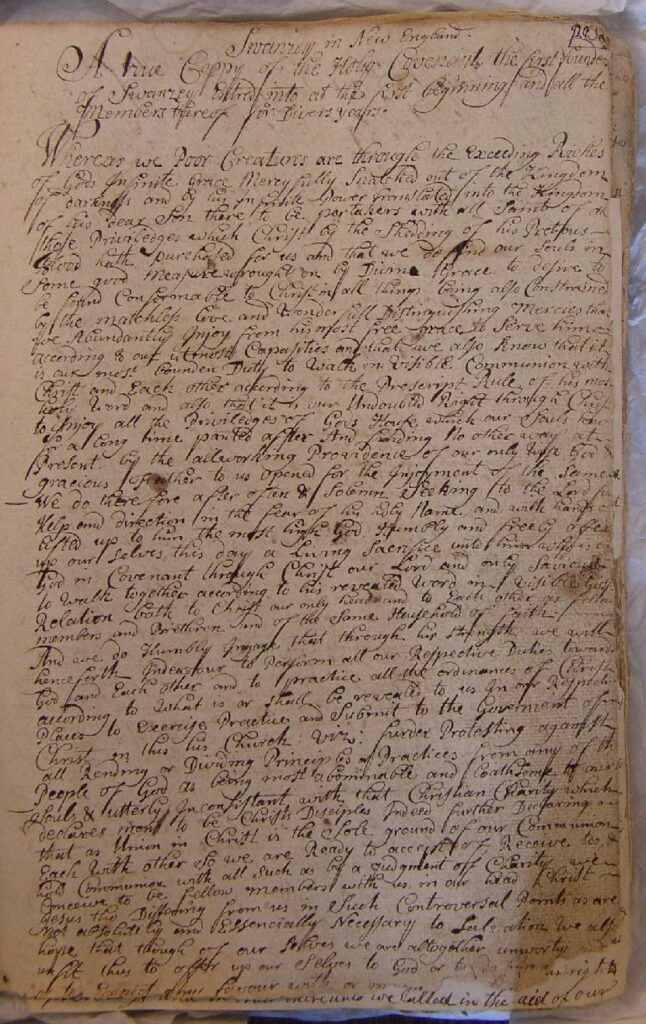“That’s OK.” – Random lost person, when granting their form of forgiveness
PREFACE
So you think pedophilia is OK? So you think molesting your sisters is OK? So you think incest is OK? So you think child pornography is OK?
Those are the questions we’ve received this week after Cameron’s post, The Gospel is for Josh Duggar, Too went viral, making its way around the Internet with more social media shares than all but a handful of previous posts at Pulpit and Pen. The questions were bewildering. Why on Earth would you take what we said in that post or related podcast and deduce that any of these things are “OK”? We’ve also heard these questions relating to my most recent episode of the Pulpit and Pen Program, The Village Church and the Survivor Blog Gals.
I addressed the Duggar issue briefly in Sunday’s sermon and discussed the topic of radical forgiveness of even the most heinous sins after Bible Study this evening. The conversation led us to a reality; when God’s people forgive, we do it in spite of the heinousness of the crime, in spite of it not being alright, in spite of calling the sin a sin without minimizing it and in spite of – at times – the reality that forgiveness and reconciliation cannot always bring full restoration. As a brother in my local church stated tonight…
“When a lost person ‘forgives,’ they mean ‘That’s OK.’ They mean, ‘It’s not a big deal and I’m over it.’“
Hence, the outrage that a sin we should all confess to be among the most egregious could be forgiven through the blood of Jesus when one is justified by faith, confesses sin, and turns from it. That’s our glorious, scandalous Gospel.
At the heart of the outrage is a fundamental underestimation of the power of atonement and shallow understanding of our own forgiveness, and I beg you to listen to my sermon dealing with that topic. At times, we have to shelve our instinctual emotionalism and take captive our Gospel-less thoughts and champion the concept of radical redemption. And as I tried to discuss in the latest podcast, emotionalism rarely helps us in our pursuit of objective truth in relation to our understanding of precisely what Christ accomplished on the Cross.
Sometimes we need to engage the brain, pick up the Bible, and put down our emotional subjectivism for a moment to do the work of Gospel-centered people. Such is the case with the outrage surrounding Village Church and the discipline of a pedophile’s wife.
THE NARRATIVE
Survivor blogs are reporting what seems to be pretty solid information, complete with documentation, that demonstrate the following: A Village Church member named Karen Root sought and received an annulment of her marriage from her husband, Jordan Root, after his confession of being attracted to pre-pubescent girls (and confessed both the “acting out” of such desires previous to the marriage and the use of child pornography during the marriage). The Roots were both missionaries serving under Village Church when the discovery was made. Upon a quick investigation and Jordan’s confession, Village Church ended their mission and brought them home. Village Church also notified the church that Jordan had sinned and been removed from the mission field, without stating the nature of his sin. Karen Root desired they share the nature of his sin, in case he had victimized children beyond his patronization of child pornography. In the staff’s initial thoughts, they indicated that disclosing such would (1) unnecessarily cause alarm without due evidence and (2) they absolutely would share the nature of his sin if there was any indication he had “acted out” his lust but that (3) if Jordan had not molested a child he would branded for life and it would cause him great harm.
I’ll let experienced Christian counselors give their opinion on whether or not you should notify the public of one’s use of child pornography in the chance he had molested children so they could receive counseling and ministry, or if doing so without evidence would cause hurtful and unnecessary panic, the possible traumatization of non-victims and a lifetime stigma of the perpetrator that would be unjust or unhelpful to his recovery.
An Aside – My own experience: I had a regularly-attending non-member confess to me his attraction to children several years ago (he did not confess illegal activity), and I sought counsel regarding whether or not I should disclose it to authorities and no one seemed to know what to tell me. I called several older pastors and they did not know. I told the man that if I saw him in any behavior I considered predatory, I would tell the authorities and I barred him from church gatherings where children were present and set up appointments to minister to him one-on-one to limit his opportunity to lust, preach to him the Gospel, and limit his exposure to our church children in order to protect them. Later, I saw him in town giving bicycle rides to little girls back and forth to the city pool and I immediately did tell authorities. I also stopped to have a very, very serious conversation with the man (to put it lightly). The authorities could do nothing, according to them, he went on to offend, and is now serving time in the Montana state prison for child molestation. To this day it haunts me as to whether I did the right thing. Sometimes I wonder if I should have told the authorities sooner, or perhaps had been more diligent in compelling them to investigate, or if I should have handled it Old West style with a tall tree and short piece of rope. I will get around to ministering to him further, after he’s been there a few more years to think about what he’s done (sorry, I still feel like the tree/rope approach at the moment). The point is, I think pastors and churches need a standardized protocol put together by professional Christian counselors to better know how to deal with sexual addiction in regard to potential child endangerment.
Maybe the Village Church elders should’ve announced the precise nature of his sin. Maybe they should have branded him with a hot iron that says “child molester” on his forehead. Maybe they just needed more time to think of the wisest approach. These are a bunch of maybes, and if you’ve already made up your mind, good for you. Seriously, good for you.
Karen Root then notified Village Church that she was resigning her membership and had filed for an annulment because Jordan married her using fraud (he did not disclose his pedophilia). Village Church notified her – and pled with her – not to annul their marriage because their church covenant – the one she signed – says that before ending a marriage a certain process must be gone through at the church and counsel must be sought and that the elders needed time to consider Biblical wisdom in the matter. In short, Karen could not resign her membership in good standing and would be under discipline for not consulting the elders, seeking church counsel and violating the membership counsel she agreed to.
To clarify, Village Church did not discipline Karen for annulling her marriage, but for annulling her marriage without fulfilling her covenant promises.
What I Suspect and What I Know
Here’s what I suspect; I suspect that Village Church would not have insisted that Karen remain married to Jordan. There’s nothing in their correspondence that would suggest such – and I mean nothing. I do suspect the church staff would have gone over Matthew 5:31-32, Matthew 19:3-12, 1 Corinthians 7:10-11 and so on. I do suspect they would have asked her to consider implications for divorce and separation for her life in light of the Gospel. And I do suspect Karen could have remained true to her church covenant and still have separated or divorced from her husband, albeit after receiving wise counsel and fulfilling her Covenant promises.
Here’s what I know; I know that divorce is permitted for adultery. I know that Karen – as the innocent party – is entitled to remarry – and Jordan is not. I also know that whereas divorce is permitted for adultery, it is often not spiritually profitable, and it takes much wisdom and prayer to determine if hard-heartedness cannot be overcome and divorce is an unfortunate necessity. I also know that Jordan’s adultery-of-the-heart, while married, still counts as adultery. Porn is adultery. Lust, according to Jesus is adultery (Matthew 5:28). And therefore, I know there is not a single marriage in any church that could not end in a “biblical divorce” (which is an awful term, and it seems woefully inadequate). If you’re a wife and you’re reading this, your husband has probably cheated on you in his heart with pornography (statistically, it’s an almost certainty) and if not, at least in his mind. That being the case, maybe some wise counsel and Scriptural advice is in order before you run off and divorce him. Call me crazy. And oh, sure, this was child porn and it is especially wicked. But again, I’m asking you to think rationally and Biblically and shelve the emotionalism for now. Think about the order or logic; lust is adultery and if you can “biblically” divorce for adultery, maybe you should be seeking counsel and be lovingly cautioned to look at this through the lens of the Gospel before you call an attorney.
THREE FACTS
Dear reader, you can say “Village Church elders were clearly wrong about [fill in the blank].” Let me help you with this, in case you think I’m a Matt Chandler fan boy. While learning from Chandler’s preaching ministry and being indebted to him in that regard, it hasn’t prevented me or Pulpit & Pen from publicly criticizing him for numerous things. Chandler’s tacit endorsement of Christian mystic, Ann Voskamp, had us scratching our heads and threatening to bring down the wrath of #the15. As a Baptist, I find the multi-site church model not only troubling, but very un-Baptist and beyond that, unbiblical. The multi-site model is a celebrity-centric dose of Presbyterian-ish non-autonomy and we pray it goes away soon. Nobody is a “Chandler guy” here, although we can confess the man preaches the Gospel, preaches it boldly, and gets at least a few brownie points for his indirect scolding of Steven Furtick’s narcigesis at Code Orange Revival (in all honesty, that was pretty cool), so we’ve a record of disagreement that I hope will give more weight to the following points. That being said, my chiefest concern isn’t that people agree with Village Church’s every decision.
My chiefest concern is what I see as the following accusations in social media, survivor blogs and beyond:
A) Church Covenants are a new invention of megachurch gurus.
B) Church Covenants are a way to “control people.”
C) And “accountability is for cults.”
I was greatly disheartened to see all-around nice guy Wade Burleson (who – to his credit – cares very much about denominational accountability) write, “Five Reasons to Say No to a Church Covenant.” Sometimes I wonder, with a supposed 16 million of us, where all the Southern Baptists have gone. Here’s a Baptist pastor, standing on the shoulders of nearly 500 years of post-Reformation Baptists, arguing with a benchmark of Baptist church polity (I may do a gracious point-counterpoint of Burleson’s post at a later time).
Regarding these misconceptions, let me state four facts for your consideration.
1) Membership in the Local Church is Essential. Oh, yes. I can hear it now. “Church membership is unbiblical.” Church membership is unbiblical in the same way the Trinity is “unbiblical” (which of course, it’s not). Some would like a more explicit rendering, but the the concept is explicitly biblical and irrefutable. To claim “there’s no such thing as church membership in the Bible” is an absurdity because what is required of a church is impossible without at least some form of formal church membership. Various membership lists were created, for example, in what we see regarding widows in 1 Timothy 5:9 – they had to know who was and who was not eligible for financial support for the church. As MacArthur points out, it appears that when members moved between churches, letters were shared in order to commend them as good-standing additions (Acts 18:27, Romans 16:1, 2 Corinthians 3:1-2). Elders have specific charge over specific churches and the people in those churches (1 Thessalonians 5:12) and they would have to know who is under their care (having to give an account for those specific people – Hebrews 13:17) and the people would need to know what elder had care over them. Likewise, discipline matters were to be decided by the church (Matthew 18), and a clear understanding of who could be disciplined and who could judge matters of discipline would require membership (could you imagine having to discipline any person who happened to attend service or imagine any person on the street being able to wander in and decide important matters of discipline?). In 1st Corinthians 5, the church members are to “purge the evil person from among [them].” Who is among you, technically? The casual attender? That guy who was here last Easter? The family that drives by on Sunday? Furthermore, who gets to decide to purge this person? Any random person from outside the congregation or a notoriously unrepentant sinner who may infrequently attend the services of the church? Clearly, who was inside and who was outside the church was distinguished for all of these reasons; pastoral care, discipline, decision making, ministry eligibility and more. A certain amount of liberty exists as to how membership may work in a New Testament congregation, but there’s certainly membership or else none of these things are possible.
2. Discipline in the Local Church is Essential. Discipline in Matthew 18 (in the case of interpersonal offense) and 1 Corinthians 5 (sexual immorality and public shame) were mentioned above, but the topic is all throughout the New Testament and especially in the pastoral epistles. The congregation has the authority to decide matters of interpersonal conflict (2 Timothy 3:16-17). Those who stir up division by teaching bad doctrine are to be warned once and twice and then formally removed (Titus 3:9-11). Those cast out by the congregation for unrepentant sin should be brought back by the congregation when they become repentant and be comforted (2 Corinthians 2:5-11). Those who refuse to accept the teaching of the Apostles should be sent out from the church (2 Thessalonians 3:13-15). Those who sin should be rebuked and then restored (Galatians 6:1) upon forgiveness and repentance. A church that does not discipline, simply put, does not fit the mark of a church.
A Necessary Caveat: I think there’s a misconception that “church discipline” involves spanking or scarlet letters or something. A brother privately approaching another with concern over perceived sin is church discipline. A sister informing another sister of how she has been offended is church discipline. Church discipline – for a sin that is continual and unrepentant – may be addressed publicly and (depending upon the seriousness of its nature) lead to complete excommunication (or “disfellowshipping,” as we Baptists like to call it). Already-public sins that have scandalized the church or the Savior should be addressed publicly, while private sins will typically be disciplined privately (unless it’s an elder, who being more accountable as a teacher, is to be rebuked before all – 1 Timothy 5:20). Discipline may be encouraging someone not to take the Lord’s Supper lest they heap condemnation on themselves, dismissal or prohibition from teaching or serving, or not giving a letter of good standing to their new church. Ninety-nine percent of “discipline” done in a church is not what you would call “formal” and is not public.
3. Unity in the Local Church is Essential. The church in Philippi was instructed to be of one mind (Philippians 2:2). The church in Colosse was to be bound together in perfect unity (Colossians 3:14). The church in Ephesus was to maintain the unity of the Spirit (Ephesians 4:1-6). The church in Rome was to live in harmony and be together in one accord with Christ (Romans 15:5). The church in Corinth, despite of diverse gifting, was to be completely unified in Spirit (1 Corinthians 12:12-31) – and on and on it goes. Churches must strive for unity in both matters of doctrine and holiness. For this reason exists both confessions of faith and church covenants (confessions cover the former – doctrine, and covenants cover the latter – holiness).
It is here that a skeptic may say, “No creed but the Bible!” My brother (or sister), the Jehovah Witnesses will line up behind you and chant that with you. A Campbellite or Millerite will shout with you, “No creed but the Bible.” And yet, I suspect that if your church is full of Campbellites, Millerites or Watchtower converts, your church will not be unified regardless of the heartiness of your chant, “No creed but the Bible” (that chant, by the way, is a creed). As a Baptist, I should love my Lutheran or Presbyterian brothers…but as we say back in the Ozark hills, “Good fences make good neighbors.” If we’re wrestling over the infant being baptized or boxing over whether or not the charismatic should be blathering to himself in the corner, we’re not unified. May God bless you as you worship in unity…over there. What I’d like to convince Baptists like Pastor Burleson to understand is that if you call yourself a “Baptist” you have a confession of faith, whether or not it is formal or informal. You have one, or you wouldn’t call yourself a Baptist.
A church covenant is similar to a confession of faith because it is designed for unity, but different in that its focus is holiness rather than doctrine. Can’t we all just say, “be holy.” Yes, but what does that mean? What do you think the Bible teaches? The Millerite thinks that means not eating pork. The fundamentalist thinks that means not drinking alcohol. The old-school Baptists thought that meant not dancing. The holiness Pentecostals think that means ladies not wearing slacks. It is best to have unity on what you think holiness looks like from the Scriptures, lest you end up disciplining everyone for everything or – worse yet – doing no discipline at all. A covenant is an agreement on what we believe the Bible teaches regarding the expectations and responsibilities of membership, and exists to unify rather than to divide.
A HISTORIC PERSPECTIVE
It concerns me greatly to have read a sister write today, “Is it just the megachurches that have these covenants, or small churches, too?” Another wrote, “Covenants are an invention of celebrity pastors to control people.” Well, if by “control” you mean “stir one another up to every good word and work” (Hebrews 10:24-25) then maybe – but the church covenant is certainly not a recent invention.
This is the church covenant of the First Baptist Church of Swansea, Massachusetts from 1663. Yes, that’s right. It was written over 350 years ago and written before the 1689 London Baptist Confession. The confession reads:
Whereas we poor creatures are, through the exceeding riches of God’s infinite grace and mercy, fully snatched out of the kingdom of darkness—and by his infinite power translated into the kingdom of his dear Son: and there to be partakers with all saints of those privileges which Christ, by the shedding of his precious blood, hath purchased for us.
And that we do find our souls, in some good measure, wrought on by divine grace: to desire to be found conformable to Christ in all things:
Being also constrained, by the matchless love and wonderful distinguishing mercies that we abundantly enjoy from his most free grace, to serve him according to our utmost capacities.
We also know that it is our most bounden duty to walk in visible communion with Christ and each other, according to the prescript rule of his most holy word;
And also that it is our undoubted right through Christ to enjoy all the privileges of God’s house, which our souls have for a long time panted after;
And finding no other way at present;
By the all-working Providence of our only wise God and gracious Father, one is opened to us for the enjoyment of the same;
We do therefore—after often and solemn prayer to the Lord for help and direction, in the fear of his holy name, and with hands lifted up to him the most high God—humbly and freely offer up ourselves this day a living sacrifice unto him who is our God, in covenant through Christ our Lord and only Saviour:
To walk together according to his revealed word in visible gospel relation, both to Christ our only head and to each other as fellow members and bretheren and of the same household of faith;
And we humbly engage that through his strength we will henceforth endeavor: to perform all our respective duties toward God and each other; to practice all the ordinances of Christ according to what is or shall be revealed to us in our respective places; to exercise, practice and submit to the government of Christ in this His Church:
Namely—further protesting against all rending or dividing principles or practices from any of the people of God, as being most abominable and loathsome to our souls and utterly inconsistent with that Christian charity which declares men to be Christ’s disciples;
Indeed further declaring that, as union in Christ is the sole ground of our communion with each other,
So we are ready to accept and receive too, and hold communion with all such as by a judgement of charity we conceive to be fellow members with us in our head Jesus Christ, though differing from us in such controversial points as are not absolutely and essentially necessary to salvation.
We also hope that, though of ourselves we are altogether unworthy and unfit to offer up ourselves to God or to do him a favor or to expect any favor or mark of merit of salvation, he will accept our free will offering in and through the merit and mediation of our dear Redeemer.
And that he will employ and improve us in his service to his praise, to whom be all glory and honour now and forever. Amen.
Pretty controlling, right? Not really. They even practiced open-communion. How progressive of them!
Or how about my own church covenant, slightly amended from the 1833 version from John Newton Brown (who also wrote the New Hampshire Confession of Faith, which is basically where the Southern Baptist Faith and Message came from):
Having been led, as we believe by the Spirit of God, to receive the Lord Jesus Christ as our Savior and, on the profession of our faith, having been baptized in the name of the Father, and of the Son, and of the Holy Spirit, we do now, in the presence of God, and this assembly, most solemnly and joyfully enter into covenant with one another as one body in Christ.
FOR THE ADVANCEMENT OF THIS CHURCH:
We engage, therefore, by the aid of the Holy Spirit to walk together in Christian love; to strive for the advancement of this church, in knowledge, holiness, and comfort; to promote its prosperity and spirituality and to sustain its worship, ordinances, discipline, and doctrines;
AS CHRISTIAN STEWARDS:
To contribute cheerfully and regularly to the support of the ministry, the expenses of the church, the relief of the poor, and the spread of the gospel through all nations.
ALONE AND AT HOME:
We also engage to maintain family and secret devotions; to religiously educate our children; to seek the salvation of our kindred and acquaintances;
BEFORE THE WORLD:
To walk circumspectly in the world; to be just in our dealings, faithful in our engagements, and exemplary in our deportment; to avoid all tattling, backbiting, and excessive anger; to be zealous in our efforts to advance the kingdom of our Savior.
TOWARD ONE ANOTHER:
We further engage to watch over one another in brotherly love; to remember one another in prayer; to aid one another in sickness and distress; to cultivate Christian sympathy in feeling and Christian courtesy in speech; to be slow to take offense, but always ready for reconciliation and mindful of the rules of our Savior to secure it without delay.
We moreover engage that when we remove from this place – which shall be in good standing in fulfillment of this covenant – we will, as soon as possible, unite with some other church where we can carry out the spirit of this covenant and the principles of God’s Word.
Oppressive, right? It’s downright brutal.
I would double-dog dare someone to find something therein that is unbiblical, wrong, bad or hurtful to either the individual or the body. That was John N. Brown’s church’s understanding of what basic holiness ought to look like in terms of responsibilities, behavior and accountability to the local congregation and going on two centuries later, not much has changed. The resistance to such good and honorable covenants usually comes from Matthew 5:34-35, “But I say to you, Do not take an oath at all, either by heaven, for it is the throne of God, or by the earth, for it is his footstool, or by Jerusalem, for it is the city of the great King.” Matthew Henry explains…
There is no reason to consider that solemn oaths in a court of justice, or on other proper occasions, are wrong, provided they are taken with due reverence. But all oaths taken without necessity, or in common conversation, must be sinful, as well as all those expressions which are appeals to God, though persons think thereby to evade the guilt of swearing.
John Gill writes…
But I say unto you, swear not at all,…. Which must not be understood in the strictest sense, as though it was not lawful to take an oath upon any occasion, in an affair of moment, in a solemn serious manner, and in the name of God; which may be safely done: but of rash swearing, about trivial matters, and by the creatures…
The Village Church’s covenant seems very mild and in almost every way, normal. Here’s where those people screaming at Matt Chandler like he’s the second coming of Mark Driscoll need to take a chill pill. Let me be the first to gripe about (no, really – let me be the first in line) the reported gag-orders and confidentiality clauses signed by volunteers at Furtick’s Elevation Church. Let’s all get together and burn an effigy of a skinny jean’s pastor in retaliation for the fine print used at Driscoll’s Mars Hill to suppress critics and silence staff. I’m totally with you. But Village Church’s covenant is not the scandal you’re looking for.
Apparently, there were problems in the 11 thousand-member church with members divorcing their spouses without seeking any counsel or thinking about it through the lens of Gospel, and so the divorce clause was put into the covenant. If someone thought they should be able to leave their spouse without seeking for counsel from the elders God is holding to account for their actions (Hebrews 13:17) and they felt very strongly about it, they shouldn’t sign it. They should publicly state (or not, whatever) that they want to keep open the door to leave their spouse without consulting anyone in the church and that such decisions are their business alone. They’d be wrong, but that would be their choice they’re perfectly free to make.
Again, it’s draconian, I know. Oppressive. Cult-like. Controlling. Terrible.
In the mean time back in reality, an agreement on how holiness is described and fleshed out in Scripture is a part of many healthy, godly churches. When there’s a controversy, beloved, make sure you’re following the right narrative.
[Contributed by JD Hall]











